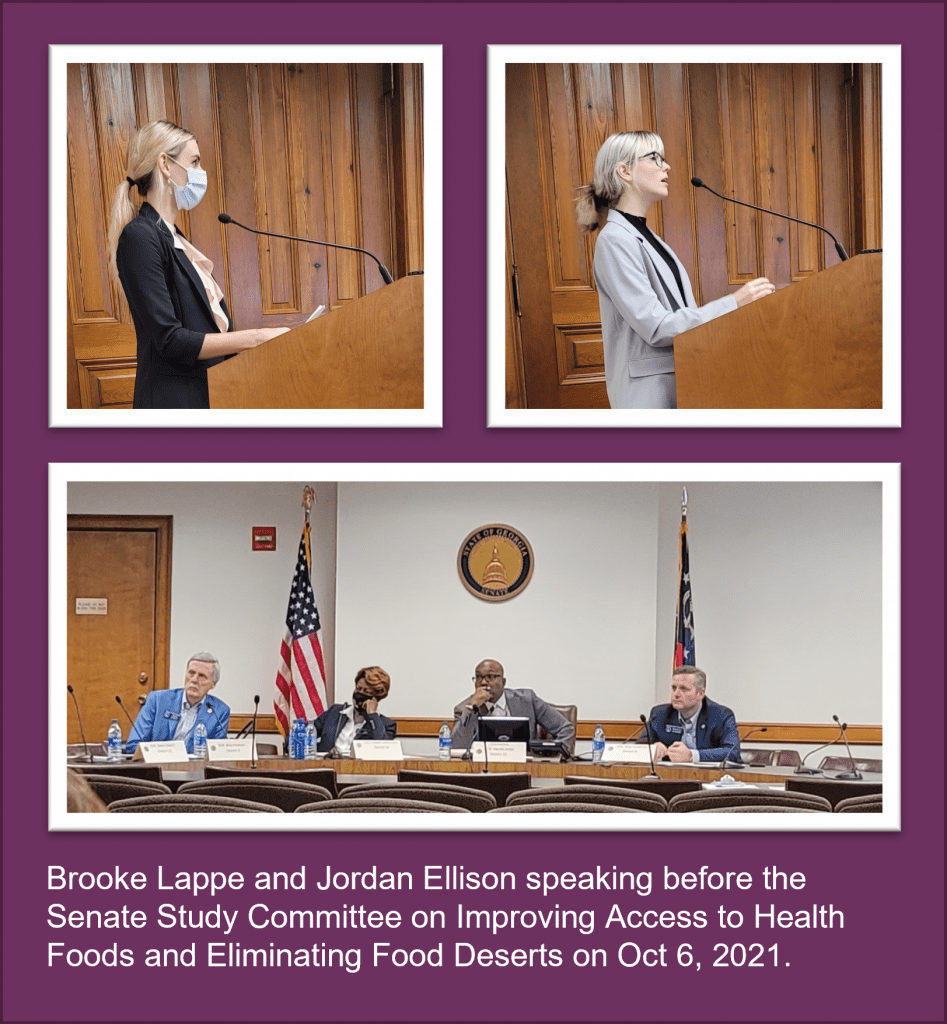Right now, food security assistance is a patchwork that extends between the Departments of Agriculture, Human Services, Family Care and Services, and Education. It also includes community, public, and private aid. This network means Georgians do not starve, but it has not worked at removing the underlying causes of food insecurity.
50+ stakeholders presented before the 2021 Senate Study Committee on Improving Access to Healthy Foods and Ending Food Deserts, including Science for Georgia, who presented results of our Food Insecurity Roundtable.

One way to prevent gaps and overlap is to develop local community task forces that coordinate activities, information, and access to programs addressing food insecurity across Georgia. By coordinating all organizations that focus on this issue, it is easier for people to utilize programs that already exist and prevents overlapping efforts.
Community Food Council – Getting Started
Science for Georgia’s interns developed an overview about starting a Community Food Council. This guide has a getting started checklist and list of initial activities. most importantly, it provides links to more in-depth resources.
SB 177 – 2023 Georgia Food Insecurity Eradication Act
Building on the Senate Study Committee’s Final Report, a bi-partisan bill, (and a repeat of SB 537 from 2022 – which died in committee), SB 177 was introduced in 2023 by Sen Harold Jones, II (D-22), Sen Russ Goodman (R-8), Sen Gloria Butler (D-55), Sen Billy Hickman (R-4), and Sen Freddie Sims (D-12). SB 177 did not pass during the 2023-24 Assembly Session.
This bi-partisan bill would establish an Advisory Council with representatives from Agriculture, Labor, Schools, Public Health, Human Services, universities, health systems, food policy councils, grocery stores, chamber of commerce, farmers, and food bank operators.
It’s mission would be to:
- Understand regulatory solutions to WIC barriers
- Explore tax incentives for new food stores in deserts
- Maximize existing education programs
- Maximize existing funding efforts for food relief
- Expand the number of farmers markets that take SNAP
- Encourage the use of co-ops and community gardens
- Increase collaborations between Georgia government, nonprofit, and private entities
